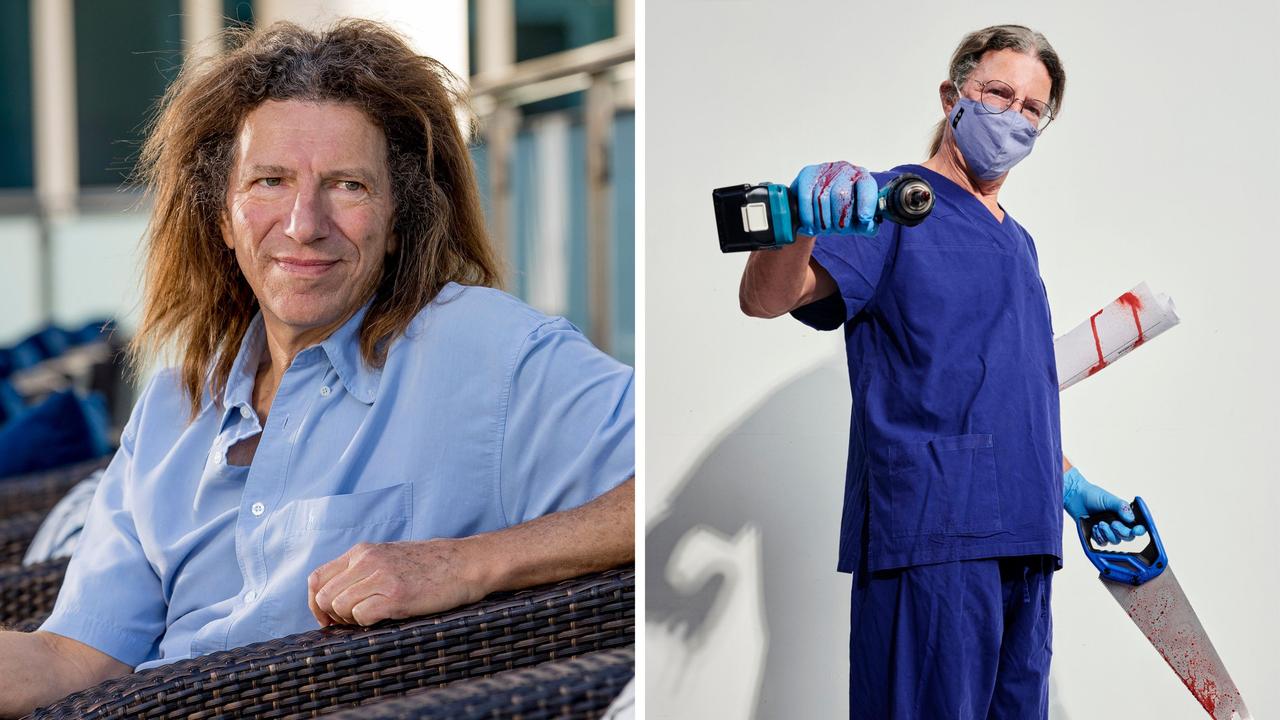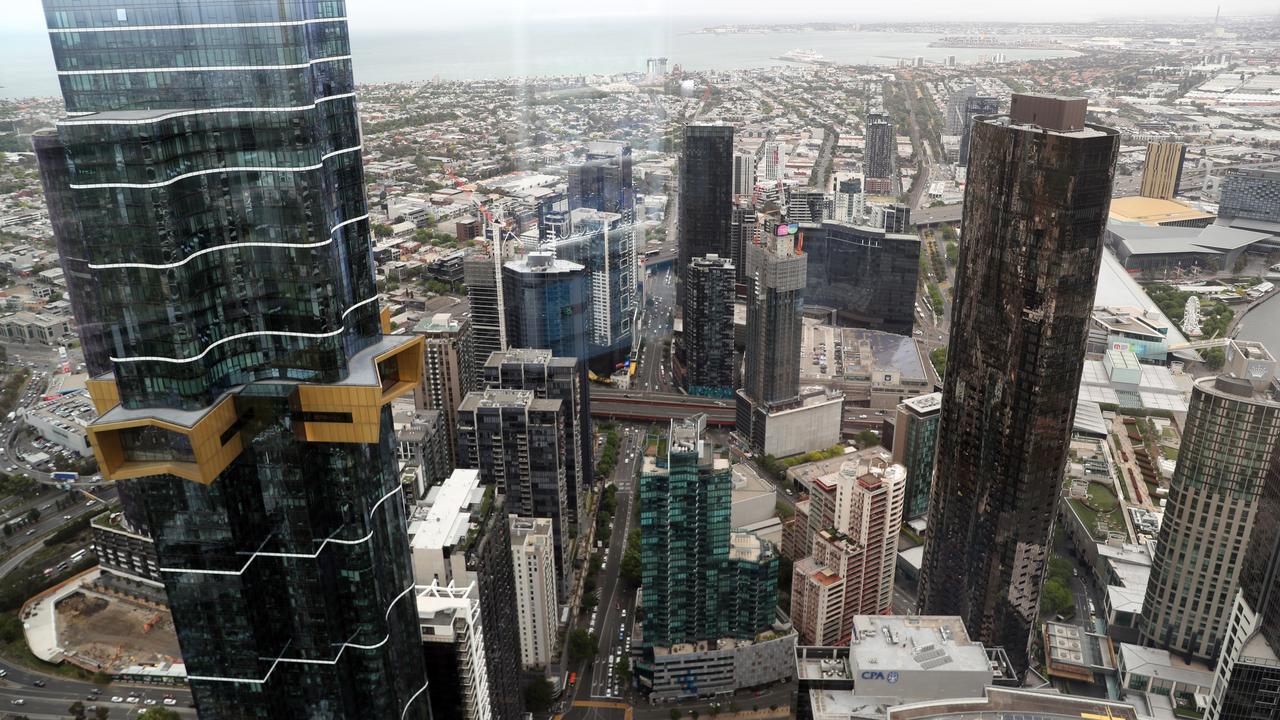Worst health insurance ‘junk policies’ named
IF YOU’RE forking out thousands of dollars a year for one of these health insurance policies, you need to read this.

Companies
Don't miss out on the headlines from Companies. Followed categories will be added to My News.
AUSTRALIA’S most worthless health insurance policies have been named in a blistering analysis by consumer group Choice.
And while they don’t come cheap, low-value or ‘junk’ policies with Medibank, NIB and HCF were among the worst offenders.
Despite costing as much as $2410 a year for a couple, the policies come with so many restrictions and exclusions that, in many cases, less than one per cent of care would be covered during a hospital stay.
And treatment for the most common serious illnesses such as cancer, stroke and heart disease was often excluded — meaning you’d be better off relying on the public system.
Choice spokesman Tom Godfrey called on the Federal Government to clamp down on what he argued was “a waste of money for consumers and taxpayers”.
“It’s particularly concerning that some health funds boast about the popularity of these ‘junk’ policies, knowing full well they offer inadequate coverage,” Mr Godfrey said.
“In many cases, these policies are not even the cheapest available, and are marketed in ways that would lead consumers to expect they have greater coverage than is the case.”
THE WORST OFFENDERS
Choice has identified ‘junk’ policies that only provide cover for a very small number of procedures such as accidents, wisdom teeth, appendix surgery, knee investigations and reconstructions, but exclude all other services and illnesses.
Couple premiums before rebate, valid until March 31, 2016:
• Australian Unity Basic Hospital, from $1500 to $2260
• Defence Health Essentials Hospital, from $1475 to $2210
• HIF Gold Vital, from $1090 to $1700
• Medibank Young Hospital, from $1235 to $2410
• NIB Basic Hospital, from $1540 to $2060
‘Junk policies’ that only cover accident and ambulance services, with all other services and illnesses excluded:
• HCF Accident Hospital only Cover, from $770 to $2140
• Medibank Accident Cover, from $1190 to $2315
CALLS TO BAN JUNK POLICIES
Mr Godfrey said it was “ludicrous” that consumers pay thousands for policies, only to have to turn to the public system when they got sick.
“Not all consumers can afford top-level health insurance, but at the same time they shouldn’t fork out money for health insurance with no net value,” he said.
He called on the government to reconsider the eligibility of ‘junk’ insurance policies for the Private Health Insurance Rebate or exemption from the Medicare Levy Surcharge and the Lifetime Health Cover Surcharge.
Australian Medical Association President Brian Owler agreed.
“If people are looking to save money on their private health insurance, the AMA strongly recommends that they do not get duped into downgrading to a junk policy,” Professor Owler said.
“It is the AMA’s view that junk policies should be banned outright.”
The AMA last week released its inaugural Private Health Insurance Report Card, which found that many policies on the market would not provide “the cover that consumers expect when they need it”.
Professor Owler said that sometimes policies have misleading names, implying that they will provide a very high standard of benefits but, in reality, they fall into the ‘basic’ category and only provide a basic amount of benefits.
He warned that comparison websites earned commissions from health insurance companies.

MINISTER ‘DEEPLY CONCERNED’
Federal Health Minister Sussan Ley has pledged to deliver a “more transparent” health insurance system, as bureaucrats pore over more than 40,000 Australians who responded to the government’s online survey.
“I’m deeply concerned at the current difficulty faced by consumers in comparing private health insurance policies and shopping around for a better deal,” Ms Ley said.
“Instead of competition and consumer choice driving new, exciting and fairer health policies, we’re seeing tricky fine print regularly protecting the status quo ... I am therefore investigating ways to ensure consumers can compare apples with apples when they shop around.”
While Ms Ley hinted at a potential junk policy ban, she flagged an extensive consultation with the industry before making any decisions.
Private Healthcare Australia chief executive Rachel David said health funds were “working closely with the government” to improve transparency.
“It is important that our members understand the products they are buying and what they are covered for,” Dr David said in a statement.
“Funds provide cheaper policies which are targeted at younger price-conscious consumers and which are appropriate for their level of risk.
“These policies play a crucial role in keeping the system sustainable under community rating, which means health funds must accept all members, whether young and healthy, or older and sick.”
WHAT INSURERS SAY
HCF Managing Director Shaun Larkin said the insurer’s Accident Only cover, which is on Choice’s ‘junk’ list, was “available on request but is not a policy that we actively market to customers”.
Mr Larkin said the policy, which represented less than 0.3 per cent of HCF’s books, did not appear on HCF’s website or in brochures.
“It’s worth noting that in Choice magazine’s March issue, HCF’s Premium Hospital and Basic Hospital policies were rated top performers in their categories; policies that we do actively promote to consumers,” he said.
“Last financial year, we paid out over 90.4 cents of every dollar of contributions back to members as benefits — the most of any major private health insurer.”
A Medibank spokesman said there was “no one-size-fits-all policy, which is why we offer a range of different health insurance products”.
“Our Young Hospital Cover and Accident Only Cover are specifically designed for our younger members, who are generally fit and healthy, but want cover for private healthcare in the event that an unexpected accident occurs,” the spokesman said.
“In order to keep premiums affordable, we exclude services that our members are unlikely to need at a young age, such as colonoscopies, joint replacement or heart surgery, or services they don’t currently need, such as obstetrics.”
An NIB spokeswoman said while the insurer would like all customers to take out the top level of cover “to ensure they have complete peace of mind”, cheaper policies were designed to “balance the level of cover with affordability”.
She said NIB’s Basic Hospital policy, which is on Choice’s junk list, was “a great option for people looking for an affordable level of cover”.
HOW TO SWITCH FUNDS
• Get a detailed quote
• Ask for the cover to start only when the old cover is cancelled
• Request a clearance certificate
• Request an itemised claims statement (make a copy and send it to your new fund)
• Cancel your direct debit with your old fund and your bank
Originally published as Worst health insurance ‘junk policies’ named



